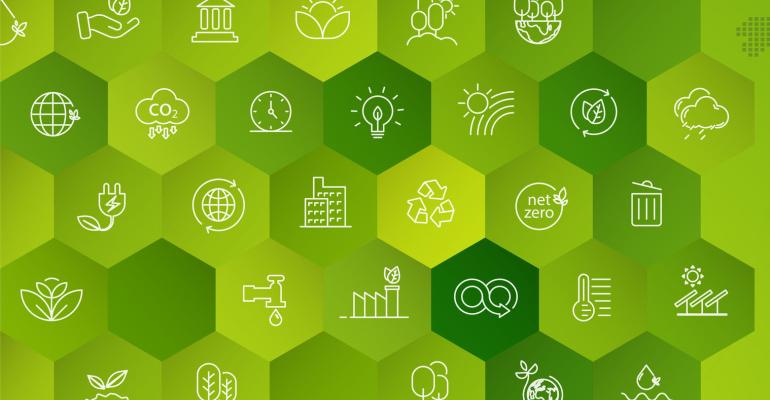The meetings and events industry is approaching sustainability advancing sustainability on multiple fronts.
For example, in the past few weeks the Professional Convention Management Association launched the Convene 4 Climate conference while Marriott International rolled out a new program called Connect Responsibly that provides groups with post-event impact reports.
Sustainability-focused education, certifications, tech tools, and merchandise are all helping to improve events’ environmental impact. But there may be no effort more comprehensive than Net-Zero Carbon Events—an initiative launched in 2021 that has inspired hundreds of meetings-industry organizations to pledge to achieve net-zero greenhouse gas emissions by 2050 and has delivered those pledges to the United Nations Climate Change Conference.
Over the past few years, NZCE has also researched and published extensive sustainability resources for free. These include its NZCE Roadmap, which helps organizations plan a path to net zero, and eight drill-down reports in key focus areas: measurement, reporting, carbon offsetting, venue energy, production and waste, food and food waste, logistics, and travel and accommodation.
This fall, NZCE, which is overseen by the Joint Meetings Industry Council, reported three new developments during a press conference at IMEX America in Las Vegas:
1. Launching SHE
After a beta launch at IMEX Frankfurt in May, a new A.I. tool called the Sustainability Hub for Events, or SHE, was officially released in October. SHE helps meeting organizers align their sustainability priorities and event details with the sustainability guidelines developed by NZCE and creates action steps customized to the event.
Singapore-based event-technology company Gevme developed the free tool in collaboration with NZCE and the Strategic Alliance of National Convention Bureaux of Europe. At the press conference, James Rees, president of JMIC, said the A.I. project is “a commitment on behalf of the industry to pull from the internet and every possible source all of the information to provide another knowledge bank.”
2. Joining the Global Climate Action Portal
In October, NZCE also announced it had joined the United Nations’ Global Climate Action Portal, an online platform that tracks climate-related initiatives around the world. Not specific to the events industry, the platform is used by countries, cities, companies, and other organizations to register their commitments to act on climate change, and the system provides transparency and accountability by presenting the progress of the initiatives. “This is a massive development,” said Rees, noting that NZCE’s acceptance on the platform “reinforces its commitments to the Paris of Climate Agreement and strengthens its alignment with the United Nations Framework Convention on Climate Change.”
3. Awaiting a Reporting Deadline
December 2024 marks the close of the first reporting cycle for the signatories of the NZCE pledge. More than 500 industry organizations have signed the pledge, promising to achieve net-zero greenhouse gas emissions by 2050 and to cut emissions by 50 percent by 2030. Signatories must publish their plans to achieve net zero, measure and track their emissions, and report on their progress at least every two years, including key metrics and lessons learned.
The clock started on the reporting requirements in late 2022 after NZCE published its “Roadmap” at the United Nations Climate Change Conference, COP27. At that time there were about 400 signatories, and the first reporting cycle for those companies is in December. NZCE plans to analyze the data from these reports in the first quarter of 2025 and publish it on the NZCE website as well as on the Global Climate Action Portal.





